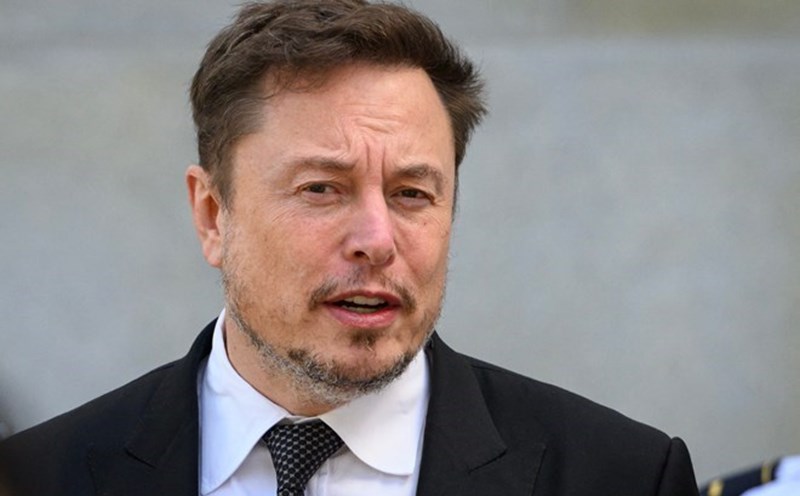Electric vehicles only need 2 years to "pay off" emissions
A new study by Northern Arizona University and Duke University (USA) has confirmed: It only takes about 2 years for electric vehicles to offset all emissions during the production of batteries and components, then emitted significantly less than gasoline vehicles for the rest of their life.
According to the group of authors, although the manufacture of lithium-ion batteries consumes energy and creates high emissions in the short term, the environmental benefits of electric vehicles are outstanding very quickly. From the third year onwards, the accumulated CO2 emissions of electric vehicles are much lower than those of incinerated vehicles, and this gap continues to widen over time.
By 2030, each kWh of lithium-ion battery will help reduce an average of 220kg of CO2, and this figure will increase to 347kg by 2050 when the global power system uses more renewable energy sources. Over the life cycle, gasoline vehicles cause environmental damage twice as much as electric vehicles - including greenhouse gases, fine dust and compounds that pollute the air.
Scientists have analyzed CO2 emissions and pollutant data monitored by the Environmental Protection Agency (EPA), and developed four scenarios for electric vehicle development from 31% to 75% of total sales by 2050. Regardless of the scenario, the emission reduction efficiency of electric vehicles is still clear, and the greater the benefits are when the grid is "greened" by wind, solar, and hydropower.
Experts assess this study as having high practical value. Professor Greg Keoleian - University of Michigan - said that this result "confirms the sustainability and economic and environmental efficiency of electric vehicles", and called on countries to speed up the conversion of vehicles to reduce climate damage and medical costs due to air pollution.
Regarding the issue of battery recycling after use, expert Ellen Kennedy of the non-profit organization RMI shared that battery recycling technology is advancing rapidly, helping to significantly reduce the environmental impact of mineral exploitation and waste treatment. electric vehicles are not only cleaner than they are today, but will become cleaner in the future, Ms. Ellen Kennedy emphasized.
Vietnam Market: Users and businesses are transforming together
If international research confirms the long-term benefits of electric vehicles, then in Vietnam, this transformation is happening quickly and substantially.
Associate Professor, Dr. Dam Hoang Phuc, Director of the Automotive Technical Training Program - Hanoi University of Science and Technology, commented: Eletric vehicles have many outstanding advantages over gasoline vehicles. This is reflected in both performance and convenience. In particular, electric vehicles have an absolute advantage over gasoline vehicles in terms of environment. Emissions from electric vehicles are concentrated at the source - that is, power plants - so they are easier to control, not directly affecting urban residents. Electric vehicles also accelerate quickly, operate smoothly and have few vibrations".
In fact, the Vietnamese market is witnessing an explosion of electric vehicles. In the first 8 months of 2025, Vietnam consumed 89,970 pure electric vehicles (BEVs), behind only Thailand (92,665 vehicles), far surpassing Indonesia (51,191 vehicles) and Malaysia (23,296 vehicles). Although the overall automobile market size is only fourth in the region, Vietnam has risen to second place in Southeast Asia in electric vehicle consumption, and can completely lead before the end of this year.
Electric cars currently account for 26% of all new cars sold, exceeding 23% of Thailand's sales and more than twice Indonesia's sales. In the top 10 best-selling cars, the top 3 positions all belong to VinFast VF 3, VF 5 and VF 6. VinFast's sales in the first 8 months of the year exceeded the whole year of 2024, reaching nearly 90,000 vehicles, showing impressive growth.
In Hanoi, Ho Chi Minh City and Da Nang, the image of electric taxis and technology cars using batteries is becoming popular. Consumers are also gradually considering electric vehicles as a smart, economical and sustainable choice instead of a testing product like a few years ago.
According to experts, Vietnam is converging all three factors to promote green transformation: Positive social awareness, domestic enterprises boldly investing and support policies from the State.
From international research to domestic practice, it can be affirmed: Electric vehicles are not only a transportation solution, but the key to a sustainable future. When each electric vehicle rolls up, it is not only the choice of consumers, but also a step forward for the whole society towards a low-carbon economy - where the environment, technology and people go together on a green road.











